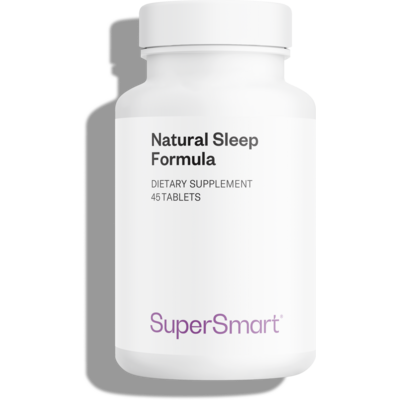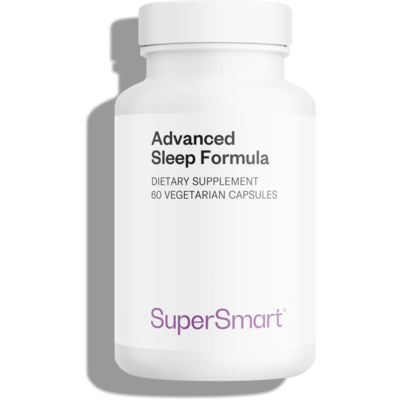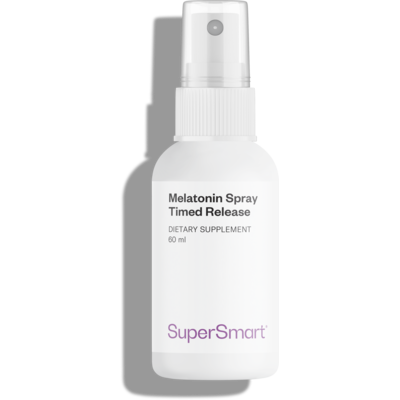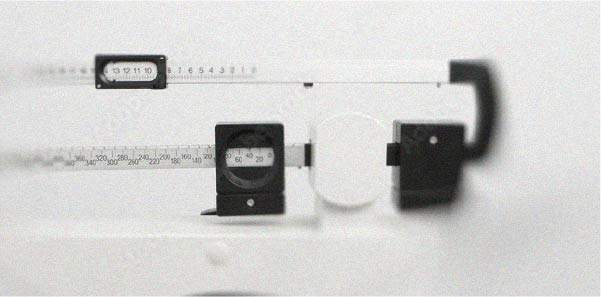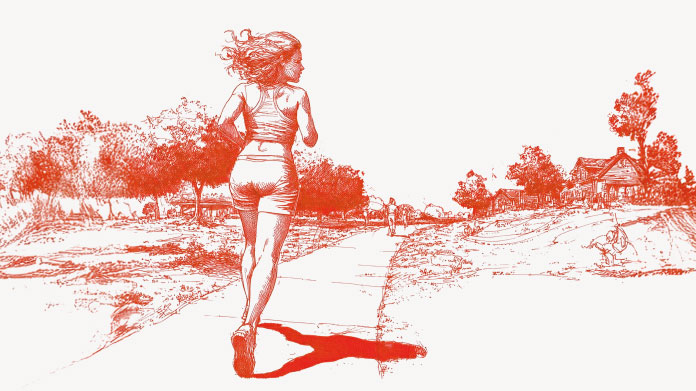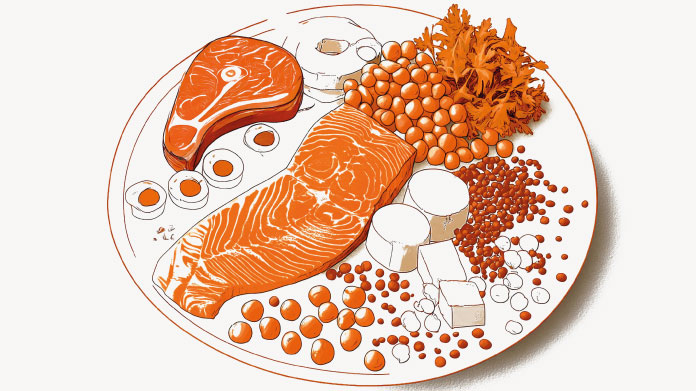Citrulline: good or bad for sleep?
It’s often taken by sportspeople for its potential effects on performance and muscle recovery, but can citrulline really keep you awake as is sometimes claimed?

Citrulline: definition and health benefits
Citrulline, or L-citrulline, is an amino acid that occurs naturally in the body.
In particular, it helps to remove excess toxic ammonia from the body by converting it into urea, a much less harmful substance which can then be excreted by the kidneys via urine.
Citrulline is also converted into arginine in the body, a precursor of nitric oxide (NO). This gas promotes vasodilation, which is important for maintaining blood flow and cardiovascular health. Increasing citrulline intake is sometimes recommended for improving the quality of erections.
Through its effect on the circulation, citrulline also supports stamina and physical performance, and is thus particularly popular with sportspeople.
This amino acid also plays a role in muscle recovery by facilitating the removal of metabolic waste products from muscles (often associated with muscle fatigue).
What are the best sources of citrulline?
Citrulline-rich foods
Small amounts of citrulline are found in several fruits and vegetables, including watermelon, known scientifically as Citrullus lanatus from which it takes its name, and other cucurbits such as cucumber, melon, pumpkin and squash.
Citrulline supplements
Sportspeople often take extra citrulline on top of that provided by the diet in the form of dietary supplements which provide a much higher dose (such as L-Citrulline). In supplements, citrulline has zero or negligible taste and is thus particularly easy to take.
If you want to supplement with citrulline, be sure to consult a health professional. It’s particularly important to seek medical advice if you suffer from heart disease (especially if you're on medication that affects blood pressure), kidney disease or liver disease, if you are pregnant or breast-feeding, have abnormal intestinal absorption, or are affected by citrullinemia (a urea disorder).
Citrulline: harmful or beneficial to sleep?
How can citrulline affect sleep?
It’s reasonable to question citrulline’s effects on sleep, given that obtaining restful sleep is a key concern for sportspeople as it is for anyone wishing to maintain good physical and mental health.
Though research is limited, the early signs are positive: taking citrulline may actually promote better sleep since it improves the circulation (which leads to better control of body temperature, good nutrient distribution, effective elimination of waste products …) and reduces muscle tension.
An animal study suggests it also has a cardioprotective effect in the case of obstructive sleep apnoea (1).
In addition, several studies have concluded that arginine (the amino acid obtained from citrulline) plays a role in regulating variables of sleep quality or at least does not impair sleep (2-4).
Summary of citrulline’s effects on sleep
In short, citrulline appears to have no negative effects on sleep.
Existing data suggests that in principle, taking citrulline presents no risk to sleep quality, indeed quite the contrary.
Of course, since everyone responds differently to supplementation, it is ultimately up to you to establish whether citrulline affects your ability to fall asleep and get a good night’s sleep.
The best supplements for sleep problems
If you’re specifically looking for a supplement to help with insomnia, we’d recommend focusing on the following (whether alongside citrulline or not):
- melatonin, alias the ‘sleep hormone’ (such as in the product Melatonin Spray);
- relaxing plants like valerian and California poppy (try Natural Sleep Formula);
SuperSmart ADVICE
References
- Ozcan B, Blachot-Minassian B, Paradis S, Mazière L, Chambion-Diaz M, Bouyon S, Pépin JL, Pialoux V, Arnaud C, Moinard C, Belaidi E. L-Citrulline Supplementation Reduces Blood Pressure and Myocardial Infarct Size under Chronic Intermittent Hypoxia, a Major Feature of Sleep Apnea Syndrome. Antioxidants (Basel). 2022 Nov 24;11(12):2326. doi: 10.3390/antiox11122326. PMID: 36552534; PMCID: PMC9774116.
- Monti JM, Jantos H. Effects of L-arginine and SIN-1 on sleep and waking in the rat during both phases of the light-dark cycle. Life Sci. 2004 Sep 10;75(17):2027-34. doi: 10.1016/j.lfs.2004.02.036. PMID: 15312747.
- Besset A, Bonardet A, Rondouin G, Descomps B, Passouant P. Increase in sleep related GH and Prl secretion after chronic arginine aspartate administration in man. Acta Endocrinol (Copenh). 1982 Jan;99(1):18-23. doi: 10.1530/acta.0.0990018. PMID: 7058674.
- Coculescu M, Serbanescu A, Temeli E. Influence of arginine vasotocin administration on nocturnal sleep of human subjects. Waking Sleeping. 1979 Jul;3(3):273-7. PMID: 230654.
Keywords
2 Days
First bottle has been finished
First bottle has been finished. 2 bottles remaining for 3 month time frame trial as recommended
CORCORAN Pamela
7 Days
repeat customer
recommended by my doctor. easy to create an account. Discounts and specials are appreciated. packaging and delivery is dependable. Capsules easy to digest. I've had some some capsules and tablets that are broken inside their bottles.
Kokee
12 Days
Order was shipped on time and packaged…Wonderful Jobs!
Order was shipped on time and packaged excellently.
DMHoge
18 Days
great products and prices
great products and prices
Marie
24 Days
Easy to navigate site
Easy to navigate site, had what I was searching for, good price. easy order-check out
James Tucker
30 Days
My skin is clearing up nicely!
Pretty good for my skin so far.
Christian
32 Days
The new packaging is excellent
The new packaging is excellent - finally! No more squashed boxes and torn envelopes.
GORAN
33 Days
Great Product
Great Product
Larry Garrett
37 Days
Quick shipping
Quick shipping; good price. No issues!
Mary McCarty
39 Days
Thr product is very good and is helping…
Thr product is very good and is helping me on my health. Then is always on time
LUGO Luz
41 Days
Buying was fine
Buying was fine. I had problems with the website not recognizing my login info, and had to call to get it fixed. Other than that, everything was good.
David S. Clark
42 Days
Your super maca and super ginseng are…phenomenal
Your super maca and super ginseng are phenomenal supplements that compliment each other when taking them together. Fantastic feeling of well-being and lots of mid day energy without the crash.
Keith Mason
44 Days
I have had amazing results with every…
I have had amazing results with every supplement I've purchased. I am extremely satisfied with this company
kirstin Torres
44 Days
Fine products
Fine products . They are on the leading edge of online supplements. The only issue -so far-is they sometime run out of subscription items.
Jason Argos
47 Days
The ordering process is very user…
The ordering process is very user friendly and the products always come in a timely manner.
CARTER Rhonda


